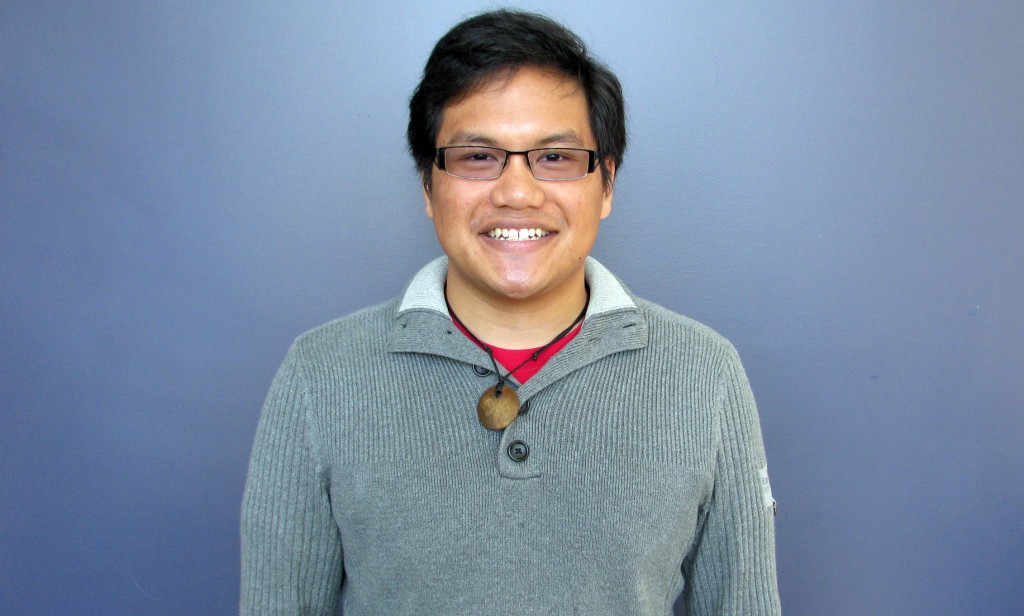When senior Jeremy Napial visited the Philippines for the first time in sixth grade, he was struck by the contrasts between large cities like Manila and his family’s rural home of Iloilo.
“It shaped me at a young age,” he recalls. “You can’t hear anything except for the people and the church bells, and maybe the karaoke bar that’s open at night, not letting you sleep. I met an aunt who was dying of stomach cancer and going blind from it. It was a very grounding experience.”
Napial, who is majoring in negotiation, conflict resolution, and peace building, is currently gaining experience in several service opportunities at California State University, Dominguez Hills, including the Americorps program, where he helps to build community for international students, and as a Diversity in Action intern through the Multicultural Center‘s partnership with the nonprofit YouTHink. He looks forward to joining the Peace Corps after graduation.
In the meantime, Napial is putting his leadership skills to use by serving as president of not only the Anime Club but also the Asian Pacific Student Association (APSA). He says that APSA came into being because of his joke that the Anime Club was the “most Asian” club on campus. He hopes that APSA in particular helps to diminish stereotypes.

“Unfortunately, there is a stigma of the model [minority],” Napial says. “It’s created barriers between minorities… so I want APSA to break down those barriers.”
Among the activities the organization has planned for the future is a resurrection of an Asian Pacific graduation celebration, which Napial hopes will attract new members. Members recently took part in a retreat to discuss the direction of APSA, under the leadership of faculty advisers Susan Nakaoka, director of field work and admissions for the Master’s of Social Work Program, and Anne Choi, assistant professor of interdisciplinary studies.
Napial says that the Anime Club–whose members tend to join APSA as well–provides an “energetic and funny” atmosphere for students to bond over anime and other weightier issues.
“At the meetings, we watch different themes of anime,” says Napial. “We have incredible conversations afterward. We find ourselves in these conversations… not about anime, but how we see ourselves, as in body image, or how we approach each other as people and how we communicate.”
Napial says that the opportunity to share views on these topics is cathartic for students.
“We don’t usually talk about stuff like this,” he says. “In general, [anime] geeks tend to have a hard time communicating, so we create an environment for people to communicate in that’s not on the computer.”
Napial, himself a self-professed “geek,” says that the ability to communicate on deep issues has been affected by the use of the Internet–to the advantage of some and the detriment of others.
“It depends on your perspective,” he says. “In some aspects, it’s made [communication] better, it helps us identify with others and know we’re not alone.”
The Westminster resident says that he transferred from Golden West College to CSU Dominguez Hills because of its unique perspectives on negotiation, conflict resolution, and peace building.
“I was thinking of doing peace studies or something in that area but this program seemed so much more unique,” Napial says. “The approach here is more universal as well as experiential. We can use our skills in many environments. As a business model, negotiation can create channels of cooperation inter-personally, and conflict resolution skills will alleviate conflicts within the workplace or unions.”
For more information on negotiation, conflict resolution, and peace building at CSU Dominguez Hills, click here.